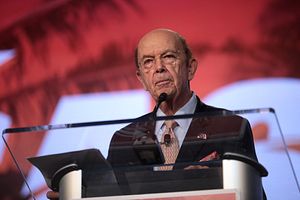The United States will send a downgraded delegation to the 2019 Association of Southeast Asian Nations-hosted summits in Bangkok, Thailand, next week, according to the White House. U.S. President Donald J. Trump will not travel to the region; instead, the most senior U.S. official in Bangkok will be U.S. Secretary of Commerce Wilbur Ross.
Moreover, according to the White House, Robert C. O’Brien, Trump’s new assistant to the president for national security affairs, will attend the summits as a presidential special envoy. Ross and O’Brien will attend the U.S.-ASEAN summit and the East Asia Summit.
Ross will also lead “an executive trade mission to Thailand, Indonesia, and Vietnam from November 3 to 8, 2019,” the White House said in a statement issued Tuesday. On the sidelines of the EAS, Ross will lead a U.S. delegation to the Indo-Pacific Business Forum, which will include businesspeople and government officials.
The apparent downgrading of U.S. participation in the East Asia Summit — the region’s banner leader-level meeting on an annual basis — stands in sharp contrast to the Trump administration’s professed focus on the Indo-Pacific region.
The U.S. Indo-Pacific Strategy Report, released earlier this year, underscored the importance of the East Asia Summit in U.S. engagement in Asia. “The United States joined the East Asia Summit (EAS) – chaired by the rotating head of ASEAN – and together we have made it the region’s leading forum for addressing political and security challenges,” the document noted.
That same document also declared the Indo-Pacific “the single most consequential region for America’s future.”
During his first year in office, Trump traveled to Manila for the U.S.-ASEAN and East Asia Summits, but ended his trip early, without attending the EAS plenary and delivering prepared remarks on regional issues. Last year, in Singapore, U.S. Vice President Mike Pence represented the United States.
According to some accounts, Trump is not particularly fond of long-distance travel to Asia. In 2019, he attended a high-level summit meeting with North Korean leader Kim Jong Un in Hanoi, Vietnam, alongside an official visit with Vietnamese officials.
Trump later traveled to Japan in late May for a state visit and once again in late June for the Group of 20 summit. After the G-20 summit, he traveled to South Korea for an official visit that was also accompanied by a trip to the inter-Korean Demilitarized Zone for a brief meeting with North Korea’s Kim.
Other participating East Asia Summit countries are expected to send leadership-level representation to this year’s summit. Former U.S. President Barack Obama attended every East Asia Summit meeting during his presidency with the exception of the 2013 iteration due to a political crisis over a government shutdown in Washington, D.C.
Instead of traveling to Asia in November, Trump is expected to travel to Santiago, Chile, for the Asia-Pacific Economic Cooperation summit meeting.

































